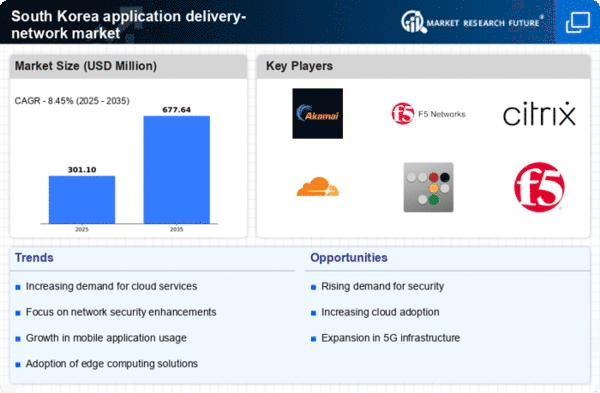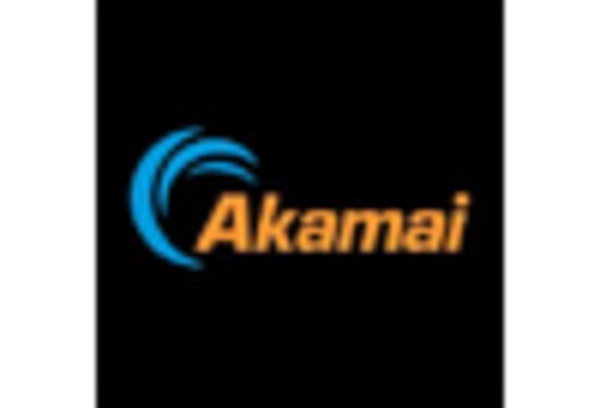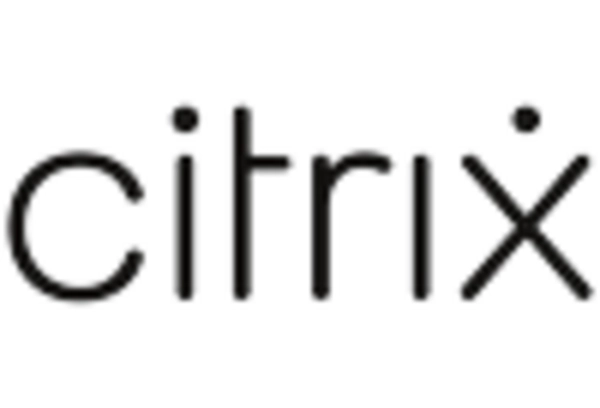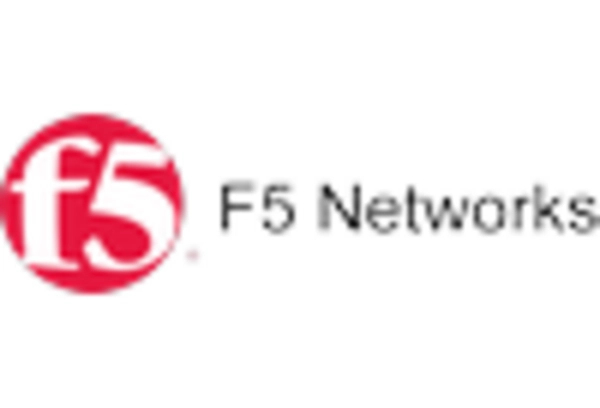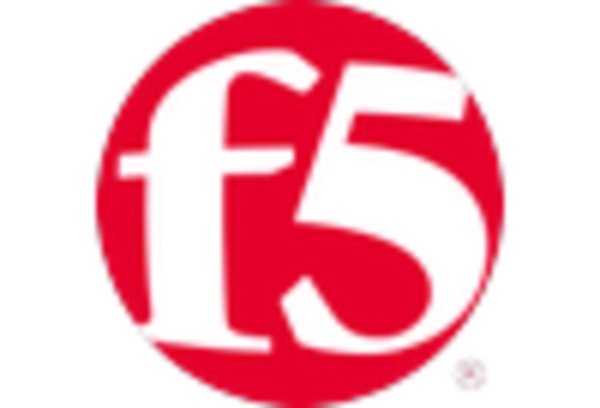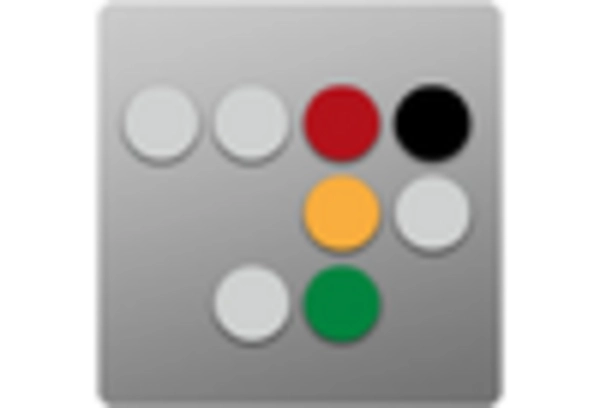Expansion of E-commerce
The application delivery-network market is significantly influenced by the rapid expansion of e-commerce in South Korea. With online retail sales projected to reach over $100 billion by 2025, businesses are increasingly prioritizing application performance to meet consumer expectations. The need for seamless transactions and quick load times drives the demand for sophisticated application delivery solutions. Retailers are investing in technologies that optimize their online platforms, ensuring that customers enjoy a smooth shopping experience. This trend not only enhances customer satisfaction but also increases conversion rates, thereby contributing to the growth of the application delivery-network market. As competition intensifies, companies are likely to adopt advanced delivery networks to differentiate themselves and capture a larger market share.
Rising Mobile Device Usage
The proliferation of mobile devices in South Korea significantly impacts the application delivery-network market. With over 90% of the population owning smartphones, there is a growing demand for applications that perform optimally on mobile platforms. Businesses are increasingly focusing on mobile application delivery to cater to the preferences of tech-savvy consumers. This trend necessitates the implementation of robust application delivery solutions that ensure fast loading times and minimal downtime. As mobile commerce continues to rise, companies are likely to invest in technologies that enhance mobile application performance, thereby driving growth in the application delivery-network market. The shift towards mobile-first strategies indicates a substantial opportunity for service providers in this sector.
Increased Internet Penetration
The application delivery-network market in South Korea experiences growth due to the rising internet penetration rates. As of 2025, approximately 98% of the population has access to the internet, facilitating the demand for efficient application delivery solutions. This high connectivity fosters the need for faster and more reliable application performance, driving businesses to invest in advanced delivery networks. The increasing reliance on digital services, including e-commerce and online entertainment, further propels this trend. Companies are likely to seek solutions that enhance user experience and reduce latency, which in turn boosts the application delivery-network market. The competitive landscape compels organizations to adopt innovative technologies to maintain their market position, indicating a robust growth trajectory for the industry in the coming years.
Focus on Enhanced User Experience
The application delivery-network market is driven by a heightened focus on enhanced user experience among businesses in South Korea. Companies recognize that user satisfaction is paramount for retaining customers and fostering brand loyalty. As a result, there is a growing emphasis on optimizing application performance to minimize latency and improve load times. Businesses are increasingly adopting application delivery solutions that provide real-time analytics and performance monitoring, allowing them to make data-driven decisions. This trend is likely to lead to increased investments in advanced delivery networks, as organizations strive to meet the evolving expectations of their users. The commitment to delivering superior user experiences is expected to propel the application delivery-network market forward in the coming years.
Government Initiatives for Digital Transformation
Government initiatives aimed at promoting digital transformation in South Korea play a crucial role in shaping the application delivery-network market. The South Korean government has launched various programs to enhance the digital infrastructure, which includes investments in high-speed internet and cloud computing technologies. These initiatives are expected to increase the adoption of application delivery solutions across various sectors, including finance, healthcare, and education. By 2025, the government aims to have 80% of public services digitized, creating a favorable environment for the application delivery-network market to thrive. This push for modernization not only enhances operational efficiency but also encourages private sector investments in advanced delivery networks, indicating a positive outlook for the industry.


